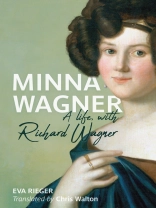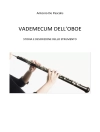This biography of Minna Planer, Richard Wagner’s wife of 30 years, reveals her as a self-assured woman and artist who was vital to her husband’s creative life.
When Richard Wagner first met Minna Planer in 1834, he was an unknown conductor, she a popular actress. His hectic pursuit of her affections culminated in marriage in 1836. Minna endured poverty with him, nursed him through chronic illness, followed him across Europe as he fled from creditors and pursued his artistic goals, and sought to provide him with the stable domestic and erotic life that he craved. He played his works to her as he wrote them, up to
Tannhäuser and
Lohengrin, and set store by her opinions. But when he went on the run as a wanted revolutionary, Minna only reluctantly followed him into Swiss exile.
Domestic peace tentatively prevailed, but was ultimately destroyed by Wagner’s passion for Mathilde Wesendonck. In 1858, he and Minna separated, she returned home to Germany, and subsequent efforts at reconciliation proved ultimately impossible. They remained married, however, until Minna’s death in 1866.
Despite having been at Richard’s side as he matured into the composer of the
Ring and
Tristan, Minna has been given short shrift by most Wagner commentators. In Eva Rieger’s acclaimed biography, translated into English by Chris Walton, the author reveals Minna as a self-assured woman and artist who played a crucial role in the creative life of her husband.
Tabela de Conteúdo
Illustrations
Abbreviations
Notes on this translation
Introduction: ‘He could not breathe without her’
Chapter 1. ‘I have become her despot’: From Love to Marriage
Chapter 2. ‘Deprived of incipient motherhood’: Riga, London, Paris, 1836-1842
Chapter 3. ‘Home for me is you alone’: Dresden 1842-1847
Chapter 4. ‘My knucklehead of a husband’: Revolution and Its Aftermath, 1848-1850
Chapter 5. ‘This ridiculous, amorous intrigue’: The Jessie Laussot Affair, 1850-1851
Chapter 6. ‘That good, foolish man…’: Exile in Zurich, 1852-1854
Chapter 7. ‘I’m a poor, stupid woman to have let you go…’: Zurich and London, 1854-1856
Chapter 8. ‘Alas, now all our happiness is gone…’: The Wesendonck Scandal, 1857-1858
Chapter 9. The Bitter End: 1858-1859
Chapter 10. ‘In love and fidelity, your Emma’: Emma Herwegh
Chapter 11. ‘…neither wife, housekeeper, nor friend’: Dresden, Paris, Biebrich, 1860-1862
Chapter 12. ‘That weak, blind man…’: The end of a marriage, 1863-1866
References
Index
Sobre o autor
Chris Walton is an Honorary Professor at Stellenbosch University. He has written and translated several books on Austro-German and Swiss music.












